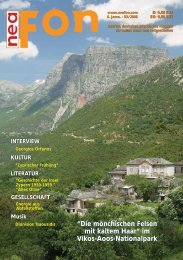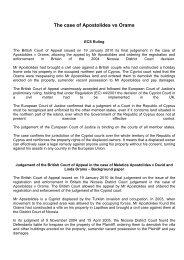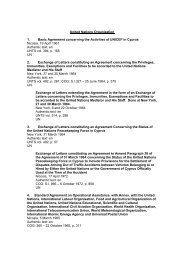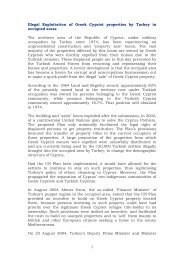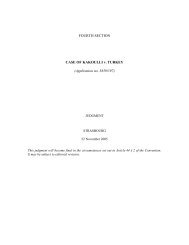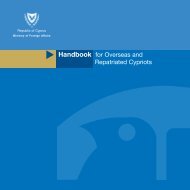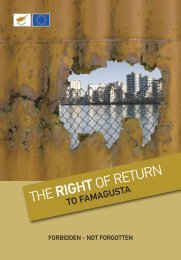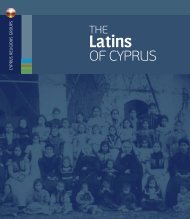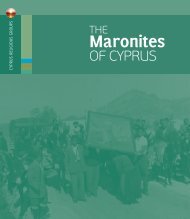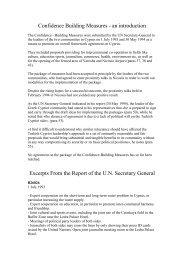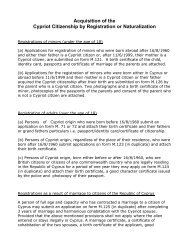Myra Xenides- Arestis v. Turkey
Myra Xenides- Arestis v. Turkey
Myra Xenides- Arestis v. Turkey
You also want an ePaper? Increase the reach of your titles
YUMPU automatically turns print PDFs into web optimized ePapers that Google loves.
XENIDES-ARESTIS v. TURKEY DECISION 19known as vakf is false. She relies on the relevant copies of the certificates ofownership proving that she is the owner of the property at issue. She arguesthat although the Government are in control of the records of the FamagustaLand Registration Office, they have failed to substantiate their allegationsand have not produced the relevant Land Registers. In addition, she claimsthat the document on the special nature of certain properties under religioustrust annexed to the respondent Government's observations is irrelevant tothe present proceedings. Finally, the applicant notes that in her observationsdated 5 September 2000 she had stated that she had acquired the property byway of gift from her mother. However, the respondent Government did notcontest the applicant's ownership of the property in their first observationson admissibility and thus, she contends that they should be prevented fromraising this argument on the occasions additional questions raised by theCourt that did not cover this point.(c) The Cypriot GovernmentThe Cypriot Government submit that the existence of these allegedpending proceedings by the Evkaf Administration of Cyprus does notpreclude the Court from deeming admissible, and passing judgment upon,whether the applicant's rights under Article 1 of Protocol No. 1 have beenviolated. In this connection they maintain that the concept of “possessions”in that provision has an autonomous meaning which is not limited toownership of physical assets; it is sufficient to show that the applicant has alegal right to some benefit. In their opinion, it is well established by theCourt's jurisprudence that there may be a right to the enjoyment ofpossessions protected by Article 1 even where ownership is in dispute(relying on Iatridis v. Greece [GC], no. 31107/96, §§ 54-55,ECHR 1999-II).(d) The Court's assessmentThe Court observes that, under its case-law, for the purposes ofArticle 34 of the Convention, the word “victim” means the person directlyaffected by the act or omission in issue (see Balmer-Schafroth and Othersv. Switzerland, judgment of 26 August 1997, Reports 1997-IV, § 26).The Court notes that the applicant has provided the Court with officialcertificates of ownership from the Department of Lands and Surveys of theRepublic of Cyprus proving that she is indeed the owner of the relevantproperty. It points out that the respondent Government have notsubstantiated their arguments disputing the applicant's victim status.Therefore, the Court considers that the applicant can claim to be a“victim” within the meaning of Article 34 of the Convention and dismissesthe respondent Government's objection of inadmissibility in this respect.



